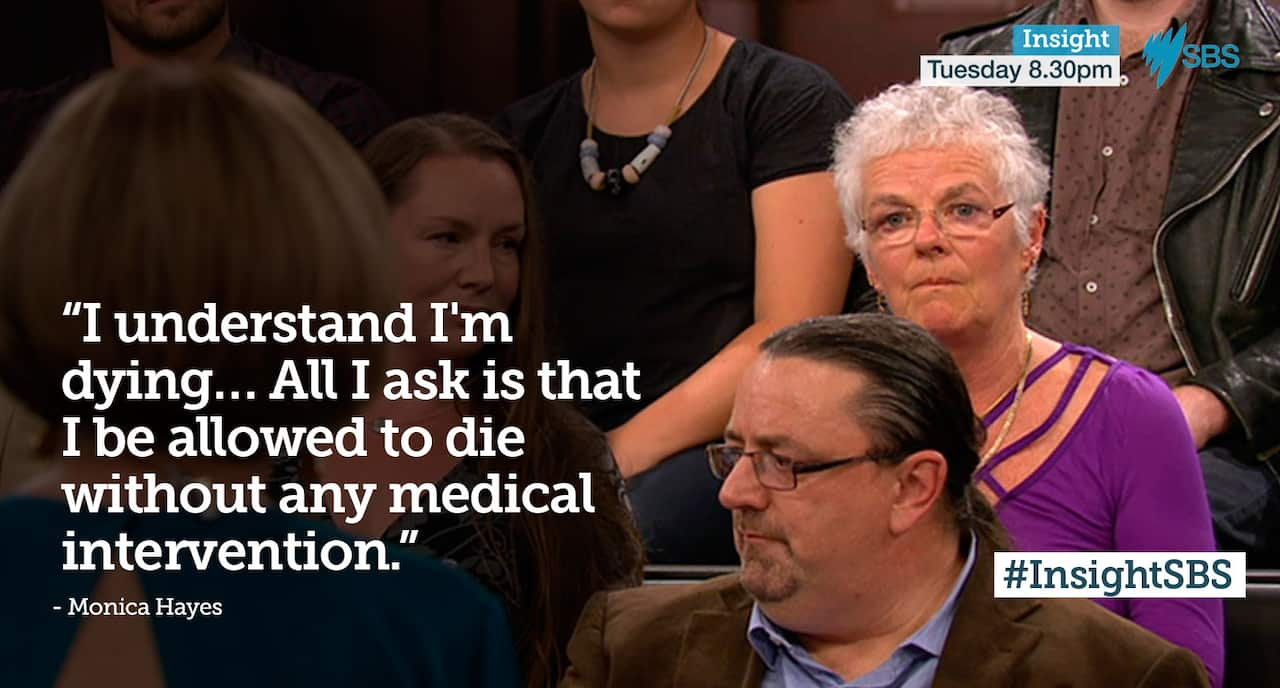For the past decade, I have promoted community discussion about the desired process of dying and choices about end of life. In my small coastal town of Portarlington in rural Victoria, there is an ageing population of retirees.
Many of these residents live alone, removed from regular contact with family. The opportunity to express these wishes through the completion of an Advance Care Plan (ACP) is something I have tirelessly encouraged to reduce fears about over medicalisation of end of life processes.
As a healthy 62-year-old woman, with a professional background in clinical psychology and ergonomics it was in this setting that I completed an ACP in March this year, in the spirit of I must practice what I preach. I have lived a life free of medical treatments and have witnessed botched attempts at prolonging life, in both my professional work and community experiences.
With an enduring attitude of being here for a good time, not a long time, the paramount consideration for me is that quality of life far outweighs any sense of preciousness. Living in a rural community, what assurance do I have that an ambulance would arrive in time to adequately resuscitate me, what botched state might I be left in, wired for life to a machine that extends my longevity?

In discussion with my husband there was interesting dialogue around my expressed wishes about my rejection of CPR and his desire to keep me alive. In the end, my request was to say, “I am not asking for you to agree with me but it's my body. I am asking you to respect my wishes if such a scenario arises.”
A month later there was a little more reason to ensure that my wishes were respected. On 29 April came the diagnosis of motor neurone disease, which impacts primarily on the bulbul muscles which control chewing and swallowing. Delivery of the news that the strange sensations in my tongue and its random behaviour within my mouth were symptoms of cellular necrosis while initially alarming made my ACP even more critical.
I have lived a life free of medical treatments and have witnessed botched attempts at prolonging life
In the early stages of this disease, there are windows of medical opportunity, while the lungs still have capacity to tolerate anaesthetic, to surgically insert a tube. To this I replied "thanks, but no thanks", as these devices are not a walk in the woods. Why should I now expose myself to wound infection, leakage, and changed bowel comfort, to name a few? I could have many kinds of artificial substances added to my food intake to reduce the risk of choking, with resultant destruction of savouring what I consume. Is this what makes a good life to the end?
I have no desire to be tube fed through a device medically inserted into my stomach for nutrition, nor to have a tube inserted into my lungs to compensate for my dying lung muscles. These were all procedures which I understood might be used to prolong my already time limited existence.
With an enduring attitude of being here for a good time, not a long time, the paramount consideration for me is that quality of life far outweighs any sense of preciousness
This is when I was prompted to speak with Palliative Care nursing about the nitty gritty of how this disease might predictably progress. I was informed that all the things I have rejected as potential treatments might be attempted down the track as nutrition is compromised.
Having thought that my ACP protected me, I required more now that I had a diagnosis. Yippee – I now could complete a Refusal of Treatment certificate under the Medical Treatment Act of 1988. This allowed me to make more specific refusal statements about intubation and a few other likely medical interventions to prolong life. The bottom line for me was "don't wire me to a machine and turn it on, only for someone to have to play god and find the off switch".
Having thought I had covered all options and could now get on with living life well to the end, I now find that the refusal of treatment only applies to a known diagnosis, not conditions yet to be contracted.
Don't wire me to a machine and turn it on, only for someone to have to play god and find the off switch
There is a long medico-legal road to tread before the ACP provides reassurance to terminally ill people that their end of life choices will be respected by medical practitioners.
Perhaps a more refreshing and positive approach might be Allow To Die directives that UK hospitals now have, rather than our approach which implies rejection of treatment through Do Not Resuscitate orders.
If I leave a legacy, it would be to ensure that a person's end of life choices, stated in an ACP, would be respected and legally safeguarded by federal legislation, not the variety of state legislation as it now stands.
Monica Hayes, former mayor of Essendon and psychologist, appears on SBS Insight's "Do Not Resuscitate" program to air on Tuesday November 10, 2015. She has given SBS an exerpt of her plan below.
Monica Hayes - Advance Care Plan
Insight is Australia's leading forum for debate and powerful first-person stories offering a unique perspective on the way we live. Read more about Insight
Have a story or comment? Contact Us


